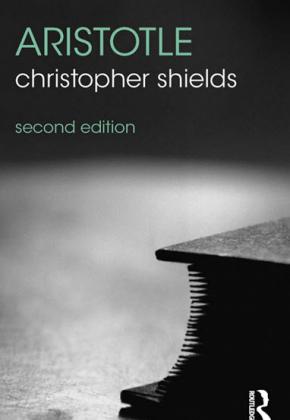Contents
Acknowledgments xiii
List of Abbreviations xv
Chronology xvii
Introduction 1
1. Aristotle: Life and Works 8
1.1 Aristotle in the ancient biographical tradition 8
1.2 Aristotle's character 16
1.3 The facts of Aristotle's life 18
1.4 Reading Aristotle 23
1.5 Aristotle's corpus and the structure of the Aristotelian sciences 32
1.6 Conclusions 38
2. Explaining Nature and the Nature of Explanation 43
2.1 Beginning in wonder 43
2.2 Explaining explaining: The four causes 47
2.3 A puzzle about change and generation 57
2.4 Matter and form I: Aristotle's hylomorphism 60
2.5 Matter and form II: Hylomorphism refined and expanded 66
2.6 The efficient cause 73
2.7 The final cause I: Problems with Aristotle's commitment to teleology 80
2.8 The final cause II: Teleology explored and grounded 91
2.9 Relations among the causes 104
2.10 Conclusions 109
3. Thinking: Scientifically, Logically, Philosophically 116
3.1 Definition 116
3.2 Essence and accident 117
3.3 The structure of scientific knowledge 124
3.4 An overview of Aristotelian logic 138
3.5 Dialectic 146
3.6 Univocity and homonymy 155
3.7 Conclusions 166
4. Aristotle’s Early Ontology: Categories - Truth, and Modality 172
4.1 The general orientation of Aristotle's Categories 172
4.2 Aristotle's work: The Categories 177
4.3 The Pre-Categories: An anti-Platonic conviction 178
4.4 The Theory of Categories: Kinds of beings 184
4.5 Generating the categories 187
4.6 The fundamentality of substance 201
4.7 A puzzle about bi-valence and modality: Tomorrow's sea battle 211
4.8 Conclusions 223
5. Puzzles of Nature 232
5.1 Change 232
5.2 The infinite 240
5.3 Time 243
5.4 Zeno's paradoxes of motion 253
5.5 The unmoved mover 259
5.6 Conclusions 268
6. Substance and the Science of Being qua Being 274
6.1 Aristotle's metaphysical interests 274
6.2 Aristotle's work: The Metaphysics 275
6.3 A puzzle remaining from the Physics 276
6.4 The science of being qua being 279
6.5 The most basic principle of all science 289
6.6 Substance reconsidered: Form and actuality 298
6.7 Conclusions 312
7. Living Beings 317
7.1 Psychological applications of hylomorphism 317
7.2 The soul: Life is meant in many ways 318
7.3 The soul: Against reductive materialism and substance dualism 326
7.4 The hylomorphic analysis of living beings 334
7.5 A problem for soul-body hylomorphism 339
7.6 Perception 343
7.7 Thinking and the active mind 349
7.8 Conclusions 358
8. Living Well 362
8.1 The final good for human beings 362
8.2 The character of human happiness: Preliminary considerations 367
8.3 Happiness and the human function 373
8.4 The virtues of character 381
8.5 A puzzle about akrasia 388
8.6 Friendship 393
8.7 The final good for human beings reconsidered 400
8.8 Conclusions 407
9. Political Association 412
9.1 The orientation of Aristotle's political theory 412
9.2 The emergence and priority of the polis 416
9.3 The best constitution 427
9.4 An ugly aspect of Aristotle's political naturalism? 432
9.5 Conclusions 437
10. Rhetoric and the Arts 441
10.1 Aristotle's orientation in rhetoric and the arts 441
10.2 Rhetoric as a craft 444
10.3 Poetic production 448
10.4 Tragedy 452
10.5 Catharsis 454
10.6 Mimesis 459
10.7 Prescriptive or descriptive? 462
10.8 Conclusions 465
11. Aristotle’s Legacy 468
11.1 Aristotle's legacy into the modern period 468
11.2 Aristotle today 472
Glossary 479
Bibliography 495
Index 502
